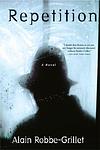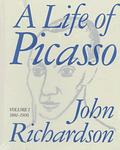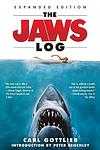The Greatest British "Spain" Books of All Time
Click to learn how this list is calculated.
This list represents a comprehensive and trusted collection of the greatest books. Developed through a specialized algorithm, it brings together 300 'best of' book lists to form a definitive guide to the world's most acclaimed books. For those interested in how these books are chosen, additional details can be found on the rankings page.
Genres
The "Spain" category of books refers to literature that is set in or about Spain, its culture, history, and people. This category includes a wide range of genres such as fiction, non-fiction, memoirs, travelogues, and historical accounts. Books in this category may explore the rich history of Spain, its diverse regions, its art and architecture, its cuisine, and its people. They may also delve into the country's political and social issues, its traditions, and its contemporary culture. Overall, the "Spain" category offers readers a fascinating glimpse into the vibrant and complex world of Spain.
Countries
Date Range
Reading Statistics
Click the button below to see how many of these books you've read!
Download
If you're interested in downloading this list as a CSV file for use in a spreadsheet application, you can easily do so by clicking the button below. Please note that to ensure a manageable file size and faster download, the CSV will include details for only the first 500 books.
Download-
1. Homage to Catalonia by George Orwell
The book is a personal account of the author's experiences during the Spanish Civil War, specifically his time with the POUM (Partit Obrer d'Unificació Marxista) militia in Catalonia. He provides an in-depth look at the social revolution that took place, the daily life of a soldier, the political infighting and betrayals among the Republican factions, and his eventual disillusionment with the cause he initially supported. The book is both a war memoir and a detailed analysis of a complex political situation.
-
2. The Monk by Matthew Lewis
"The Monk" is a gothic novel that explores the tragic downfall of a virtuous and respected monk who succumbs to temptation and sin. The protagonist is lured into a world of lust, greed, and pride by a woman who is actually Satan in disguise. His moral decay leads to a series of horrific events including murder, incest, and witchcraft. The novel serves as a cautionary tale about the dangers of excessive pride and the destructive power of unchecked desire.
-
3. Don Juan: A Poem by Lord Byron
This epic satirical poem tells the story of Don Juan, a handsome, charming young man from Spain who gets into various adventures and romantic escapades throughout Europe and the Ottoman Empire. Throughout his journey, he encounters a variety of characters, including pirates, sultans, and aristocrats, while also engaging in numerous love affairs. The narrative, filled with humor, irony, and social commentary, serves as a critique of societal norms and conventions, particularly those related to love and morality.
-
4. The Moor's Last Sigh by Salman Rushdie
This novel follows the life of Moraes Zogoiby, the last in line of a once powerful and influential Indian family. Told from his perspective, Moraes recounts his family's history, starting with his grandparents and moving through to his own life. The narrative is filled with tales of love, betrayal, political unrest, and the supernatural. The protagonist's life is marked by a strange curse that causes him to age twice as fast as a normal human, adding a layer of urgency and tragedy to his story. The book explores themes of cultural identity, family legacy, and the passage of time.
-
5. Collected Stories by W. Somerset Maugham
"Collected Stories" is an anthology of tales that offers a broad range of human experiences, emotions, and dilemmas. The stories, set in a variety of locations around the world, explore themes such as love, betrayal, war, and societal norms. The author's keen observations of human nature and his skillful storytelling provide a captivating and thought-provoking reading experience.
-
6. A Life of Picasso by John Richardson
This biography delves into the life of one of the most influential artists of the 20th century, Picasso. The book provides an in-depth look into his early life, his relationships, his artistic evolution, and his influence on the art world. It offers a comprehensive exploration of Picasso's personal and professional life, shedding light on his genius and the complexities of his character. The author's detailed research and intimate knowledge of the artist's life make this book a definitive biography of Picasso.
-
7. Monsignor Quixote by Graham Greene
"Monsignor Quixote" is a modern take on the classic Don Quixote tale, set in post-Franco Spain. The story follows a village priest who is elevated to the rank of monsignor through a clerical error, and his friend, the town's ex-mayor who is a staunch communist. The unlikely pair embarks on a journey across Spain, engaging in philosophical debates about faith, politics, and life. The journey and their friendship mirror the adventures of Don Quixote and Sancho Panza, with the narrative exploring the absurdities and contradictions of life, religion, and politics.
-
8. Shooting Script by Gavin Lyall
In "Shooting Script," the protagonist, a former Royal Air Force pilot, finds himself entangled in a dangerous adventure after agreeing to fly a plane to the Caribbean for a film shoot. What begins as a seemingly straightforward job quickly spirals into a perilous mission involving smuggling, treachery, and murder. As he navigates the treacherous world of criminals and double-crosses, the pilot must use his wits and flying skills to outmaneuver his enemies and uncover a conspiracy that threatens more than just his life. The novel is a thrilling blend of action, suspense, and aerial exploits, delivering a gripping tale of intrigue in exotic locales.
-
9. Sharpe's Eagle by Bernard Cornwell
This novel is set during the Peninsular War and follows the adventures of Richard Sharpe, a British soldier who rises through the ranks due to his bravery and skill in battle. After a personal challenge leads to the capture of a French standard, an eagle, Sharpe must navigate the complexities of military politics, betrayal, and the harsh realities of war. Alongside his loyal men, Sharpe embarks on a daring mission that tests his leadership and combat abilities, aiming to secure a decisive victory for the British army against the backdrop of Spain's rugged landscape. This story combines historical detail with action-packed sequences, showcasing the harshness of war and the valor of those who fight.
-
10. A Book of Mediterranean Food by Elizabeth David
This book is a comprehensive guide to Mediterranean cuisine, offering a wide variety of recipes from different regions. It presents an array of dishes from simple to elaborate, using fresh, local ingredients characteristic of the Mediterranean diet. The author's in-depth knowledge and passion for the region's food culture are evident in the detailed descriptions and historical context provided for each recipe. The book also includes personal anecdotes, making it an informative and enjoyable read for food lovers.
-
11. Don Quixote's Delusions by Miranda France
"Quixote's Delusions" is a travel memoir that explores the contemporary Spanish landscape through the lens of the classic novel "Don Quixote." The author embarks on a journey through Spain, retracing the steps of the novel's protagonist while examining the enduring influence of the tale on the Spanish culture and psyche. Along the way, she encounters a diverse cast of characters and experiences that reflect the quixotic blend of reality and fiction, revealing the ways in which the spirit of Don Quixote continues to resonate in modern Spain. Her reflections offer insights into the country's history, traditions, and the everyday lives of its people, all while pondering the universal themes of idealism, madness, and the pursuit of dreams.
-
12. The Insult by Rupert Thomson
The novel revolves around a man who, after being shot in a random act of violence, awakens from a coma with his memory intact but his sight lost. As he navigates this dark, new world, he discovers that his blindness allows him to perceive people and situations in a profoundly different way. His journey is both a physical and psychological exploration, leading him to confront his past, understand the present, and foresee a future that challenges his very perception of reality. Set against a backdrop of mystery and suspense, the story delves into themes of identity, perception, and the human condition, making it a compelling and thought-provoking read.
-
13. The Spanish Tragedy by Thomas Kyd
The play is a seminal work of Elizabethan theatre, revolving around the themes of revenge, justice, and the human condition. It tells the story of Hieronimo, a Spanish nobleman who becomes the marshal of Spain and seeks vengeance for the murder of his son, Horatio. Driven by grief and the failure of the justice system, Hieronimo meticulously plots and executes a complex revenge against the perpetrators, who are revealed to be connected to the Spanish court. The narrative unfolds with a play-within-a-play structure, culminating in a dramatic and bloody conclusion that serves as a commentary on the consequences of revenge and the cyclical nature of violence.
-
14. Voices Of The Old Sea by Norman Lewis
"Voices of the Old Sea" is a captivating travel memoir that chronicles the author's experiences in a remote fishing village on the Costa Brava in Spain over three summers in the early 1950s. The book captures the transformation of the village from a traditional, insular community steeped in ancient customs and subsistence living, to a burgeoning site for tourism. Through vivid descriptions and insightful observations, the author portrays the clash between old ways and new economic realities, exploring the impact of change on the villagers' lives and culture. The narrative serves as a poignant reflection on the loss of simplicity and authenticity in the face of modernization and commercialization.
-
15. Operation Mincemeat by Ben Macintyre
The book is a gripping account of one of the most successful and bizarre deception operations of World War II, orchestrated by British intelligence. It tells the true story of how British officials concocted an elaborate scheme to mislead Nazi Germany about the Allies' next strategic move by planting false information on a corpse dressed as a British officer. The body, carrying fake secret documents suggesting an Allied invasion of Greece and Sardinia, was set adrift to be found by Axis forces. The ruse, hinging on the authenticity of the planted persona and the documents he carried, aimed to divert German forces away from the actual target: Sicily. The operation's success played a crucial role in the overall Allied campaign in the Mediterranean, showcasing the ingenuity and daring of wartime espionage.
Reading Statistics
Click the button below to see how many of these books you've read!
Download
If you're interested in downloading this list as a CSV file for use in a spreadsheet application, you can easily do so by clicking the button below. Please note that to ensure a manageable file size and faster download, the CSV will include details for only the first 500 books.
Download













